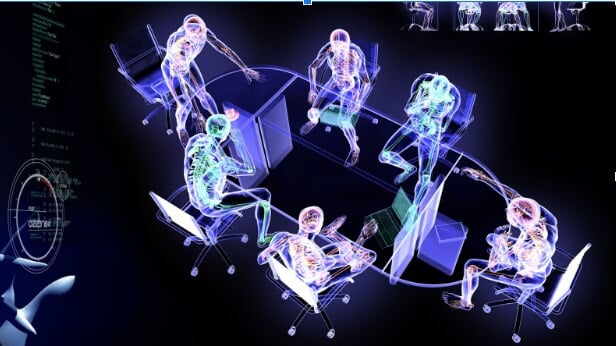As a seasoned Digital Transformation Expert, I’ve witnessed a myriad of changes in the retail industry. What was once a sector driven by person-to-person interactions has now transformed into an interconnected web of physical and digital experiences, thanks to the technological leaps of the 21st century. It’s fascinating to ponder how the retail landscape has evolved over the years, from quaint corner shops to expansive shopping malls, and now to the threshold of digital e-commerce platforms.
The advent of Artificial Intelligence (AI) and personalization technologies are pushing this transformation further, revolutionizing the way we shop and interact with brands. With a twinkle of nostalgia in my eye and a surge of excitement for what’s to come, I delve into the impact of these disruptive technologies on the retail industry.
Anticipating Customer Expectations
As someone who prides himself on being forward-thinking, it is my firm belief that the most effective way to deliver meaningful experiences is by understanding and foreseeing customers’ needs. It is akin to being an effective host – offering a guest their preferred beverage before they’ve even asked for it.
Retailers are harnessing AI to do just that. This technology is leveraged to analyze customers’ search data, browsing history, social interactions, and physical store visits, to discern patterns and predict their needs. This approach aids retailers to curate better product collections, thereby fostering efficient shopping experiences.
Notably, the e-commerce titan, Amazon, has ingeniously embraced this concept with their Amazon 4-star retail store. The store stocks products rated four stars and above, thus cleverly giving customers what they already love. It’s a prime example of how traditional retail can learn from its digital counterpart.
Enriching In-Store Experiences
The traditional retail stores, with their tactile and immersive experiences, continue to hold a special place in the shopping ecosystem. For many, the joy of exploring and trying products physically can’t be replaced by online experiences. And there’s where AI comes in, adding a layer of personalized interaction to these physical experiences.
For instance, AI-enabled robots or kiosks help customers navigate through vast store layouts, virtual shopping assistants provide recommendations, and AI-driven Augmented Reality (AR) applications allow customers to virtually ‘try-on’ products. These AI-fuelled innovations are breathing a new life into in-store experiences.
Personalized Recommendations
Personalization is no longer a luxury; it’s an expectation. The savvy, modern customer expects retailers to know their preferences, and AI, in conjunction with machine learning and big data, is stepping up to the challenge.
From analyzing browsing history and social interactions to past purchases and the duration of page views, AI evaluates an array of customer interactions. Drawing from these insights, it delivers product recommendations tailored to customers’ preferences. A prime example of this is Netflix, whose algorithmic wizardry helps it deliver a personalized viewing experience to each user.
Efficiency in Customer Service
Customer service is a domain very close to my heart. I strongly believe that the quality of customer service can make or break a business. Today, AI is propelling customer service to unprecedented levels of efficiency and customer satisfaction. AI-powered chatbots and automated messaging agents are capable of providing quick and personalized customer service, thereby creating a positive shopping experience for customers.
Moreover, AI-driven programs can proactively send automated messages about pending services or regular orders. This helps reduce the manual workload of customer service representatives and allows them to focus on more complex customer inquiries. This efficient allocation of resources ultimately enhances customer satisfaction.
The Consequences of Not Keeping Up
Nevertheless, retail stores that are slow to adopt AI and its benefits run the risk of falling behind in this highly competitive industry. The stakes are higher than ever before. Without AI, they may struggle to anticipate customer needs, offer enriched in-store experiences, or deliver personalized recommendations and efficient customer service.
As a result, these stores may face the daunting prospect of a dwindling customer base and dwindling profits. Therein lies the crucial importance of adopting AI and personalization technologies for survival and growth in the current retail landscape.
Reflections and Predictions for the Future
In conclusion, the role of AI in retail isn’t just a fleeting trend. It is a transformation that’s reshaping the industry from the inside out. From my perspective, AI isn’t merely a tool for better sales or customer service; it represents an entirely new way of thinking about retail and the relationships between brands and consumers.
As I contemplate the future of the retail industry, my heart brims with anticipation. I look forward to a retail landscape that is more personalized, efficient, and interconnected than ever before. A landscape where AI is not just an add-on, but an integral part of the retail DNA.
Remember, in the world of retail, it’s not just about selling products; it’s about creating experiences. And AI, my friends, is our ticket to crafting these unforgettable experiences.
A Closing Thought
For those wondering about the real-world implications of AI in retail, consider this. Alibaba, a Chinese multinational conglomerate, uses AI to create personalized shopping experiences for its customers. Its “FashionAI” system provides fashion tips and mix-and-match clothing suggestions to customers in-store. Now, isn’t that incredible?
I believe, in the context of retail, the future is drenched in what I like to call – “digital sunshine”. As we harness the power of AI, the retail industry will continue to evolve and adapt, making shopping a more personalized and delightful experience.







